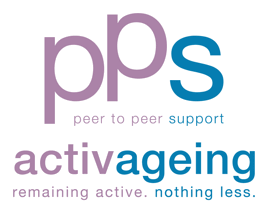Active Ageing Policies
The share of older people is increasing in all countries in Europe. This demographic increase has an impact on health, social welfare, employment, and pension systems. According to the European Union app. 14% of all older people in the EU have no children (and thus no grandchildren) and are therefore more at risk of lacking support and mental wellbeing when they get older.
Ageing can be connected to risks, like depression – 10-15% of all people in the European Union over 65 years are affected and are more likely to be affected by chronic illness as well. The risk of poverty, which is amounted to 9-10% in the Czech Republic or Spain, or 20-21% in Poland, Lithuania, Greece, and Portugal) is higher the lower the income, the more interrupted the careers of older people were and the lower the retirement income is. Combined risk factors have a great impact on older people, especially women and older people with low educational background, and this also affects their health and their stage of activity in later life.
In response to these developments, policies on ageing have been developed at European level, also on active ageing. Policies have the best impact when they are designed in a comprehensive way – family policy, community policy, labour market policy, health policy, and social policy.
Older people often have a lower educational background than younger people do. In order to break the concept of “active ageing” down, courses, workshops and seminars can be designed to support older adults in becoming and staying active. Political decision makers have responded to this and have supported the political discussion on lifelong learning in the European Union. Some of these policies are briefly explained here.
Examples of European policies
Strategic framework for education and training[1]
Education and training policies have gained impetus since the adoption of the Lisbon Strategy in 2000, the EU's overarching programme focusing on growth and jobs as well as the modernization of the labour market. The strategy recognised that knowledge, and the innovation it sparks, are the EU's most valuable assets, particularly in light of increasing global competition.
European Agenda for Adult Learning[2]
The renewed European Agenda for Adult Learning builds on the 2006 Communication on Adult Learning, and the subsequent Action Plan on Adult Learning 2008-2010. It builds on the Strategic Framework for European Cooperation in Education and Training, ET2020 from an adult learning perspective and should be seen in the context of the Europe 2020 strategy and its targets of reducing early school leavers and increasing tertiary education graduates in all age groups.
Terminology of European education and training policy[3]
A multilingual glossary of terms in English, Spanish, German, French, Italian, and Portuguese was developed to better understand education and training policies in Europe. It is intended for researchers and more generally for all those involved in education and training policy. This glossary is an updated and extended version of the ‘Terminology of vocational training policy’, published by Cedefop in 2004. 100 key terms of educational policies were selected for this glossary.
The definition and selection of key competencies
A competency is more than just knowledge and skills. It involves the ability to meet complex demands, by drawing on and mobilizing psychosocial resources in a particular context. The OECD’s “Definition and Selection of Key Competencies” document was designed to bring a wide range of expert and stakeholder opinion together, to produce a coherent and widely shared analysis of which key competencies are necessary for the modern world. Three competencies are mentioned, which make good sense for projects with seniors as well as other population groups: to act autonomously, to interact in heterogeneous groups, and to use tools interactively (for example ICT tools).
Key competences for lifelong learning[4]
The European Reference Framework defines key competences for lifelong learning for the European population. Competences are defined here as a combination of knowledge, skills and attitudes appropriate to the context. Key competences are those which all individuals need for personal fulfilment and development, active citizenship, social inclusion and employment. The 8 key competences are:
- Communication in the mother tongue
- Communication in foreign languages
- Mathematical competence and basic competences in science and technology
- Digital competence
- Learning to learn
- Social and civic competence
- Sense of initiative and entrepreneurship
- Cultural awareness and expression
The role of volunteering in active ageing[5]
Conclusions adapted by the Council of the European Union summarize the role of activities in social policy in 39 points. Volunteering as a formal, non-formal or informal activity is promoted.

